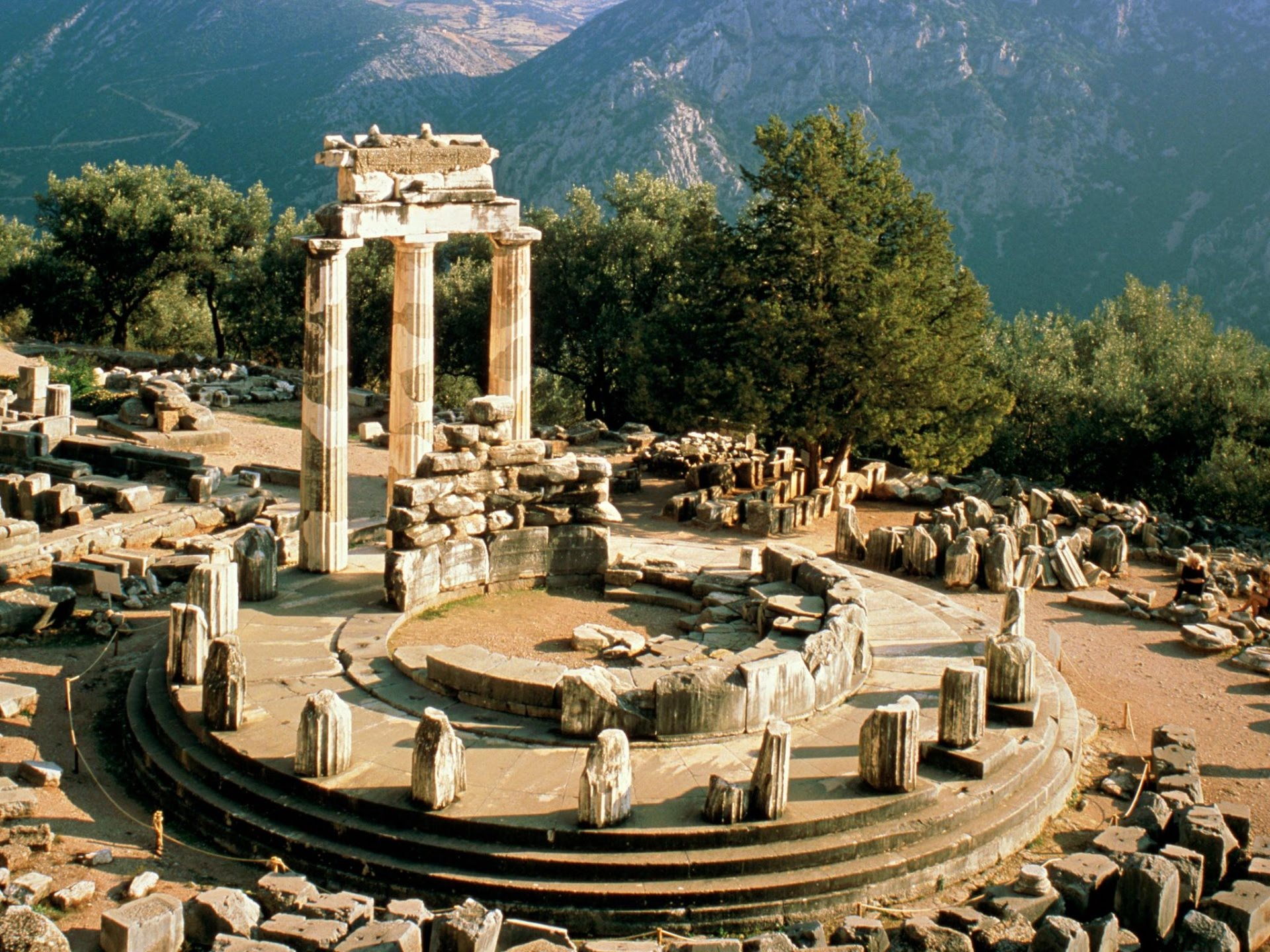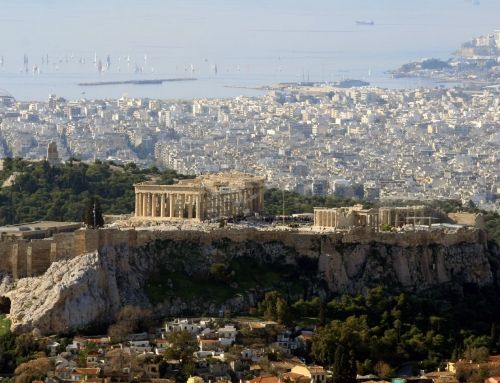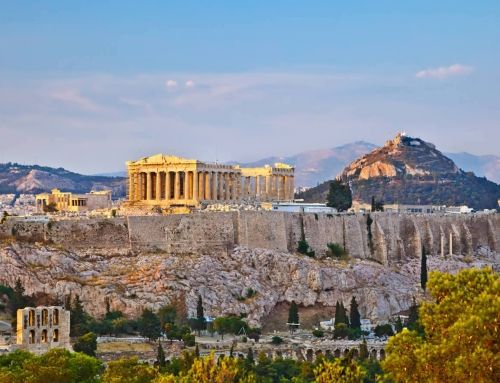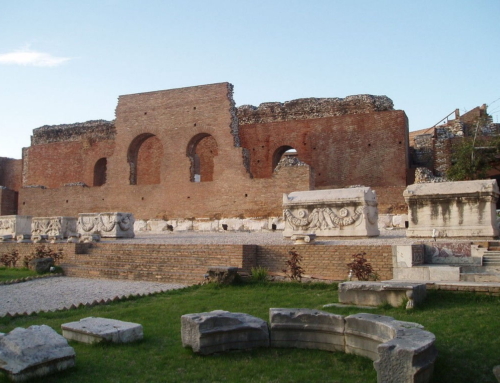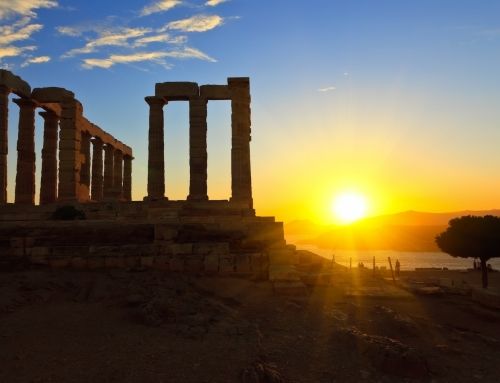A once-in-a-lifetime tour to ‘’The navel of the World’’ Delphi, the most famous world heritage site dedicated to Apollo the god of Harmony and Light.
Highlights
Drive to Parnassus mountain via the picturesque village of Arachova
Arrive at Delphi the ancient sanctuary of Apollo
Entrance in the Museum of Delphi
Visit the Archaeological sight with the Temple of Apollo and the Oracle
Delphi Full Day Tour
We arrive at Delphi via Arachova, a picturesque town situated on the south slopes of Mount Parnassus. Arachova has become a popular day or weekend road trip for Athenians mostly during the winter because of the ski centre, also well known for its attractive hand-woven carpets.
Delphi was considered to be one of the most important cities of ancient Greece. It was believed to be home to the goddess Gaia, or Earth, and later to Apollo after slaying Gaia’s son, the snake Python. The Pythian games—similar to the Olympic Games—were held here every four years to honour Apollo’s slaying of the Python dragon.
Delphi was once considered the centre of the world because the eagles of the East and West were said to meet here, and became a famous Greek centre during the 7th century BCE—complete with a theatre, gymnasium, stadium, and hippodrome—where treasuries from all over Greece were said to be kept.
However, the Oracle was the most eminent feature of Delphi, and some of the most important people from all over Greece—including demigods, according to Greek mythology—visited here seeking advice.
According to the mythology, sacred weapons were used in Delphi to defeat invaders. One such story describes the Persian invasion of Greece. It was said that Xerxes ordered a large force to attack Delphi, and when Apollo intervened and gave sacred weapons to the defenders, those weapons reigned down thunderstorms and tore large parts of rock from the mountain, destroying a large part of the Persian army. The remainder of the army was then chased by two supernatural soldiers, Greek heroes.
Excavations in Delphi have found evidence of occupation at this site back to 1600 BC. And during the Second World War, the Germans excavated below the Oracle in search for something unknown.
Pythia, The Oracle of Delphi
Pythia was the priestess who held court at Pytho, the sanctuary of the Delphinians, a sanctuary dedicated to the Greek god Apollo. Pythia were highly-regarded, for it was believed that she channeled prophecies from Apollo himself, while steeped in a dreamlike trance.
A Pythia was chosen among the priestesses of the temple upon the death of the previous Pythia. Moral character was of utmost importance, and even if the newly-chosen Pythia was married and had a family, she had to relinquish all familial duties in order to fill her role in the temple. Pythias were likely women from higher-class families, were educated, and well-read.
The practice of interpreting the word of Apollo entailed that the Pythia bathe in the Castalian Spring, which was followed by the sacrifice of a goat. She then descended into a special chamber called an adyton beneath the temple which was fumigated with barley meal and laurel leaves on a burning hestia. There, at the temple center, the Omphalos, she sat on a covered tripod cauldron over a deep well-like chasm. Seated in this way, enveloped by vapors while shaking bay branches, the Pythia would fall into a trance state and channel the god. In this way did the Pythia pronounce judgement and prophecy to those in attendance. Those seeking the counsel of Apollo and his priestess would bring offerings of laurel branches, gifts of money, and a sacrifice of a black ram.
It is a Hellenic tradition that the Pythia entered her trance through the influence of volcanic fumes or hallucinogenic gases emerging from a crevice in the floor of the Castalian Spring. Although the sanctuary lies directly above two geological fault lines and the spring near the sanctuary contains ethylene, which can provoke hallucinations, there has been no conclusive determination on whther the trance states of the Pythiai were induced through exposure or was self-induced.
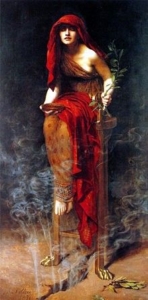
“Priestess of Delphi”
http://www.ancient.eu/video/161/
Sites & Museum Opening Hours
- Winter : From November 1 to March 31 08:30 until 15:00
- Summer : From April 1 to October 31 08:00 until 19:30
Entrance fee required :
9 Euros for Delphi and the Museum
- Free entrance : For students from E.U (student id is required)
- Free entrance : For children under 19 years old
- Reduced entrance fee for students outside the E.U
- Reduced entrance fee for citizens over 65 years old from E.U Countries
Note: Please note that on this tour, your driver is not licensed to accompany you on your walk up the top of the Temple of Poseidon. If you want a licensed guide to tour the site with you, you can hire one at extra cost.
Hellenic unity.


